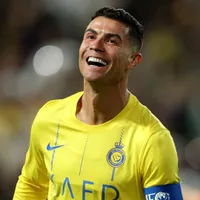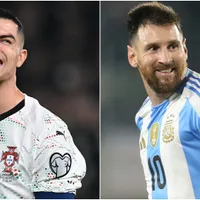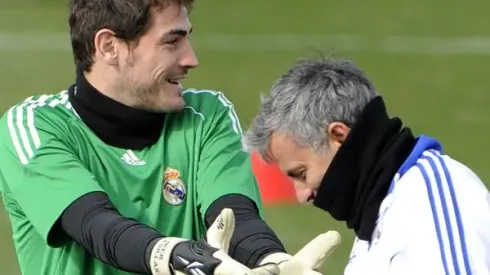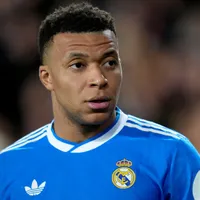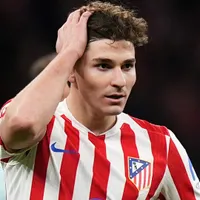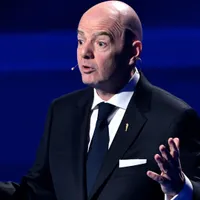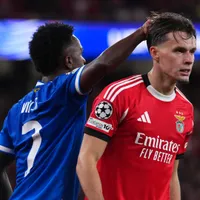Had Iker Casillas written his own script, his vindication would have been Lisbon, a year-and-half-ago, when he wore the captain’s armband as Real Madrid claimed their 10th European crown. But it’s been a some time since San Iker could author his own fairytales. Over the past five years, a player that was once considered among the world’s best goalkeepers has waned, doing so disputably, dramatically, and ultimately, sadly. Even on that Saturday 16 months ago, when he would lift UEFA’s Champions League trophy for a third time, Casillas’s shaky display against rival Atlético nearly cost his team its coveted decima. Now 34, Casillas is no longer in the conversation as the world’s best. He’s no longer even at the Santiago Bernabéu.
Ask those who still call Casillas San and there’s a clear villain in his script – a man who was brought to Madrid five years ago, ostensibly to ensure that decima. In that, José Mourinho ultimately failed, but during his last season in charge of Los Blancos, he accomplished something few dreamed imaginable. By the time he left the Spanish capital in the spring of 2013, the self-dubbed Special One had thrown Casillas’s career into turmoil, benching the El Real and Spanish national team captain and accelerating a decline that persists to this day.
On Tuesday, at the Estádio do Dragão in Porto, Portugal, Casillas will have another chance at vindication (live on FOX Deportes and ESPN3 at 2:45pm for viewers in the United States). There, in goal for FC Porto, Mourinho’s former charge will be part of a team that welcomes the icon back to his old ground – the place where he first came to European prominence. And should Casillas perform to the standard Mourinho no longer thought him capable of, Saint Iker can accelerate what could be one of his adversary’s greatest failures.
That failure, of course, could be this season at Chelsea, the third in Mourinho’s return to London. Having seen mild success in Madrid, delivering a league title few thought the Merengues could take from Barcelona, Mourinho returned to Stamford Bridge in 2013 amidst a pique of nostalgia, with both he and owner Roman Abramovich longing for the days before petulance broken them apart. Staying the slow declined that started after Carlo Ancelotti’s 2011 departure, Mourinho brought the Blues back into title contention, delivering the Premier League to Blues’ supporters in his second season in charge. In just over five seasons with Chelsea (spread over two different spells), Mourinho’s claimed seven major honors.
This year, however, has been a relative calamity, albeit a small one, in temporal terms. Through seven rounds, Chelsea sits 14th in the Premier League, off to their worst league start in over 25 years. Sample size caveats apply, but the team’s disappointing start hasn’t been remarkably unlucky. Eighth in shots faced per game but fourth in shots taken, Chelsea’s underlying numbers hint at a team that should be in European contention. They don’t however, read like a title contender’s.
Two months ago, nobody saw this coming. Short-sightedly, but almost unanimously, Chelsea was seen as an overwhelming favorite to win the league – the team which, having lost nothing from its championship core, would take advantage of a wayward Manchester United, the ennui at Arsenal, and a Manchester City that failed to significantly stock up. Eight weeks later, United are on top of the league, City seem title favorites, and preseason punditry has never looked worse, with a blind belief in Chelsea possibly our greatest summer fault.
If Chelsea doesn’t improve, Mourinho will lose his job. There’s no precedent for Abramovich tolerating this, and there’s no example of Mourinho maintaining his composure through such trials. And if Casillas can lead Porto to what may not even be a upset on Tuesday, he can make the Dragons into a version of Rosenborg BK – a team whose surprise result at Stamford Bridge early in the 2007-08 Champions League helped lead to Mourinho’s first downfall.
That Casillas is even in position to pull off such sabotage is a minor, under-discussed miracle, if we took to calling unfortunate turns miracles. It is nonetheless somewhat miraculous that he finds himself in Portugal, having taken the swift step from no. 1 at the Bernabéu to playing out his final days in a footballing netherworld. Porto is a highly accomplished and respected club – a two-time European champion that’s became masterful in arbitrage of the South America-Europe pipeline – but it’s doesn’t occupy the same spotlight as a Real Madrid, nor is it a bonafide vacation home like those in Turkey, the Middle East, China or the United States. Porto is, at a time when so many historic giants are struggling, a compromise between significance, geography and, perhaps most important to Casillas, Champions League.
If the Champions League wasn’t so important to Casillas, he would have ended up in Milan, with either AC Milan or Inter. That’s the logical step, once you exit the Bernabéu. But neither of those teams are in Europe this season, let alone Champions League. And Juventus? For all the iconography around Casillas, he is not Gigi Buffon; at least, not in the eyes of juventinos.
SEE MORE: When did Jose Mourinho stop being special?
Perhaps following the footsteps of another departed Real Madrid captain, Raúl, to Germany would have been possible, but Schalke is not in Champions League this season, either. Nor is Borussia Dortmund, who could have justified a perceived upgrade in goal. The idea of moving to a Wolfsburg, Bayer Leverkusen, or a Borussia Mönchengladbach? They’re possibilities that helped bring a team like Porto into view.
Arsenal had long been linked to Casillas, but Petr Cech moved to the Emirates from Chelsea early in the summer. City had Joe Hart, United was engaged with Real Madrid on other fronts (David de Gea’s front), while a reunion with Mourinho at Stamford Bridge was not an option. In other days, Liverpool would have been possible, especially in those days when a former Castilla man was in the coach’s box. But Champions League has become a rarity at Anfield.
And Champions League cannot be a rarity to Casillas. Not while he still sees himself as viable. Not in the months after he was fighting to stay on at Madrid. After years at a club that defined itself, for better or worse, by how it did in Europe, Casillas couldn’t just leave it all behind. If he is still good (and, in his mind, he is), then he’s good enough for Champions League. And if he’s good enough for Champions League, Milan, Inter, Liverpool aren’t options.
A unique confluence of history (the wane of the Milans), elite goalkeeper placement (Buffon at Juve; Manuel Neuer at Bayern) and timing (Casillas having not resolved his situation until late in the summer) left one option – a team that could justify a luxury in goal. Paris Saint-Germain would have made sense, as would a swap to Manchester United, but it was Porto, a team that assumes the spotlight for derbies and Europe but little else, that could welcome the fallen icon. And perhaps the summer of 2015 would be the only time they could pull it off.
It’s hard to describe what’s happened without besmirching Porto, but there’s a fundamental absurdity to it all. Casillas had all the makings of a mythical one-club man, but when that went sour, there should have been another move. Cech, at a similar point in his career, had Arsenal. Where was Casillas’s soft landing? Not in Italy; nor England, Germany, or even France. Sixteen months ago, Casillas was captaining a team to Europe’s greatest glory. Two summers later, he had been recycled to the Dragão.
The move is, perhaps, a belated victory for Mourinho. When he benched Casillas shortly into the 2012-13 season, he insisted it was for sporting reasons, remarkably arguing that Antonio Adán was a superior `keeper at the time. That proved not to be the case. Adán was shaky, almost immediately hurt, and did little to convince a divided Bernabéu that politics weren’t part of Mourinho’s motives. With the Spanish dailies reporting Mourinho was trying to break up a locker room headed by Casillas and Sergio Ramos, an alternate narrative took hold. This wasn’t coach versus player. This was icon versus icon.
Diego Lopez was brought in that January, but when Real Madrid stumbled in the league and failed to get past the Champions League semifinal, Mourinho moved on. Carlo Ancelotti was brought in from Paris and won the long-sought decima, but he did so while making Casillas a cup specialist. Though he was on the field when El Real claimed both the Champions League and Copa del Rey, Casillas had not fully won back his job. He wouldn’t do so until the next year, when Lopez, the man who donned the gloves for Real Madrid’s league matches, was sold to Milan.
Real Madrid didn’t win anything in Casillas’s final season in goal. Barcelona reclaimed La Liga. Juventus upset Madrid in the Champions League’s semifinals. For the second time in three years, Real Madrid would go without a trophy. And for the second time in three years, the team would also change coaches.
This time, though, it would also move on from its longest tenured player. Form that continued to wane left the Bernabéu divided about Casillas, providing club president Florentino Pérez enough of a window to act. Pérez has moved on from stars even when they’ve been valuable, so his desire (perhaps unconscious) to undermine his most talented players may have won out, regardless. But with Casillas’s continued decline, Pérez didn’t have to justify the move in footballing terms. And with Costa Rican international Keylor Navas in the wings, letting Casillas go could be argued as best for the club.
When the departure finally happened this summer, Pérez claimed it was Casillas’s choice. Technically, he may have been right. Casillas wanted to leave, finally, but mostly because so many at the club didn’t seem to care if he stayed. Rather than being an icon like Buffon, somebody that has become treasured in Turin, Casillas had a Madrid that was willing to buy out his contract to let him leave. He wasn’t merely being relegated to a backup. He wasn’t wanted, at all.
It took two years, but it was the ending Mourinho had set in motion. He was wrong when he argued Casillas was not as good as Adán, but the more subtle message proved correct. Not only was Casillas in decline, but he was not indispensible. The San Iker so many at the Bernabéu saw as integral to the image of the club was no longer a unanimous figure of renown. Madrid could, indeed, survive without him. Other goalkeepers could, it seem, fill his gloves. There was no need to fear a day when Casillas was not in goal.
SEE MORE: Messi and Ronaldo: La Liga will return to normal when its big two are gone.
He was disrespectful in how he went about it. He was prideful, egotistic, and insensitive about how he managed the transition. He was José Mourinho, almost archetypically so, but he was right. A transition needed to happen. And as the gods would have it, they way he handled the transition gives Casillas an ultimate chance at redemption.
In a perfect world, Casillas would have been vindicated by the decima. He would have also finished out his career at the Bernabéu. Thankfully for us, the world is more fair than perfect, making for much more interesting viewing. The 2014 Champions League final was a reflection of what Casillas actually is rather than a boring iconography, one that was based more on image and emotion than on-field performance. In previous generations, he wouldn’t have ended up at Porto. That he did gives us something more than the regular superstar shuffle.
It also gives Casillas a chance at the ultimate vindication. No, Mourinho won’t lose his job if Chelsea loses in Porto, but it could be a significant turn, particularly if a stellar performance from an old nemesis helps define the game. At a time when his leadership is coming under renewed scrutiny – when Mourinho’s camera-facing antics are again overshadowing his team’s performance – what questions would be asked if somebody he judged so harshly defied that judgment? How would perceptions of Mourinho continue to change if Casillas comes out on top?
If perceptions change at all, it will only be slightly, but it could have a snowball effect. A week of Casillas’s glory on the front of English, Spanish and Portuguese broadsheets? After two days to stew, Mourinho has to face the press on Friday. He didn’t answer questions about Casillas before Porto. He’ll be even less likely to do so oshould Chelsea lose.
The mood continues to turn, Chelsea continues to perform poorly, and Mourinho’s lesser self takes over. The same man we saw struggle with adversity in Madrid, or near the end of his first spell with Chelsea, could resurface. In the face of failure, Mourinho doesn’t reevaluate. He becomes incredulous, confrontational. He’s the porcupine that flashes its quills, unknowing that the mere need to do so shows fear and weakness.
What if the man Mourinho so famously went to war with wins what might be their final battle? What if Casillas, a player whose personality lends so many to see a hero, plays heroically against an adversary so easily cast as a villain? What if, at this time when Mourinho’s more vulnerable than he’s been in eight years, a player not good enough to hold off Antonio Adán beats him at his old stomping grounds?
Ah, so many ifs, but at one time we could have asked: What would happen if Casillas left the Bernabéu? That time has come. What would happen if Mourinho left Chelsea? Or, came back? Both of those things have happened. What if Mourinho was actually right about Casillas three years ago, and what if, in the twilight of his career, Casillas got one more chance to prove him wrong? And what if all that happened at the place where Mourinho originally made a name for himself?
Sometimes, if is the most powerful word we’ve got. And if Porto derails Chelsea tonight, a new world of doubt will surround José Mourinho.

